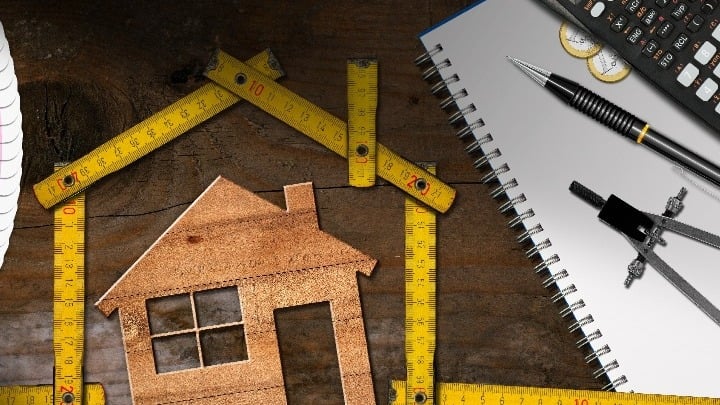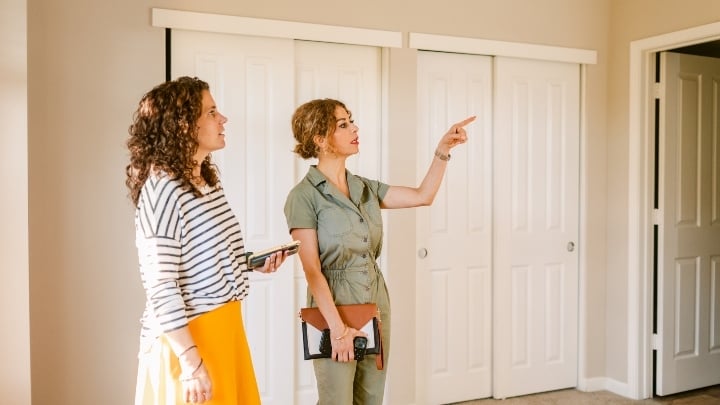7 Things to Avoid Between Loan Pre-Approval and Your Home Closing
You're pre-approved for a home loan—congratulations! You're about to embark on one of the most exciting parts of your homeownership journey, and...
3 min read
 Twin Cities Habitat for Humanity
:
7:15 AM on November 6, 2025
Twin Cities Habitat for Humanity
:
7:15 AM on November 6, 2025

When you settle into your new home after closing day, a whole new journey begins. You’ll have the chance to turn your property into a true home. Along the way, you’ll make plenty of wonderful memories. But it is vital to be ready for the costs that come with homeownership. If you are or plan to become a first-time homebuyer, here are some tips that can help you keep your new home running smoothly.
You already know about your mortgage costs, plus electricity, heating, and other utilities. But you also need to prepare for the unexpected. Things will break down or need to be repaired or replaced over time. All the problems that were previously handled by a landlord are now up to you.
This can be intimidating. Luckily, things don’t usually break down all at once!
Still, it's important to start saving for home maintenance from the start. If you’ve just moved into your home, that could mean putting off renovations until later. It is always better to have some money saved for emergencies. The question is: how much do you need to save?
Very important. According to a 2025 survey, 81% of homeowners say the costs of homeownership are higher than expected, and nearly half (46%) weren't able to accurately estimate the cost of repairs and improvements before buying. Plan ahead to avoid financial stress and protect your investment.
Try to save 1% to 4% of your home’s value every year. For a $120,000 home, that would be $1,200-$4,800. (That 1% doesn’t include closing costs or other fees.)
With a $120,000 home, setting aside $100 - $400 per month gives you a cushion for both routine maintenance and unexpected repairs. Most months , you will only need a small portion of what you saved. But if your heating system fails in the winter you might end up spending $3,000 - $7,500 on one expense.
It all depends on quality and materials, but here are some estimates:
When you bought your home, you probably got a home inspection, letting you know if there are major problems with the roof, electric, or sewer system. Sometimes, the home can’t be sold until issues are fixed.
With a clean home inspection, you won’t be making significant changes right away. Over the life of an average 30-year mortgage, though, lots of repairs will come up.
Pro tip: Ask the seller for maintenance records and the age of major systems before closing. This information helps you prioritize your savings and plan for upcoming replacements. If the roof is 20 years old, start setting aside extra funds now. If the furnace was just replaced, you likely have 15+ years before needing a new one.

Some average replacement costs include:
Knowing the age of each part of your home helps prioritize your savings. It’s important to get this information from the seller before closing. It might be impossible to find otherwise. An asphalt roof with 20 years of service might need replacement at any time, while a brand new furnace can last for years.
Important note: These costs can vary significantly based on your location, installation complexity, and material quality. In 2025, material and labor costs have increased approximately 5-7% annually in recent years. Budget 10-20% above these estimates for unexpected complications.
Regular preventative maintenance can extend the life of major systems and prevent expensive emergency repairs:
A $200 annual maintenance budget can save you thousands in premature replacements.
Here's a helpful rule of thumb, the 50% Rule: If a repair costs more than 50% of a replacement AND the item is past 50% of its expected lifespan, replacement is usually the better investment.
Examples:
The best way to free up funds for home repairs is to start with a low-cost mortgage. A low fixed interest rate can save you thousands of dollars over the 30-year life of your home mortgage—money you can redirect to your maintenance fund instead of interest payments.
Twin Cities Habitat for Humanity’s TruePath Mortgage is an affordable solution for first-time homebuyers. Contact us today or download your First-Time Homebuyer Guide to get started or learn more.
Your gift unlocks bright futures! Donate now to create, preserve, and promote affordable homeownership in the Twin Cities.

You're pre-approved for a home loan—congratulations! You're about to embark on one of the most exciting parts of your homeownership journey, and...

As a single parent, home maintenance concerns can feel overwhelming when you're already managing work, childcare, and everything in between. You...
![9 Things to Do Before Closing on a House [VIDEO]](https://www.tchabitat.org/hubfs/2023%20Blog%20Images/September%202023%20Blog%20Images/closing-on-home.jpg)
Closing on your first home can feel overwhelming, but it doesn't have to be. Whether you're working with a traditional lender or exploring programs...